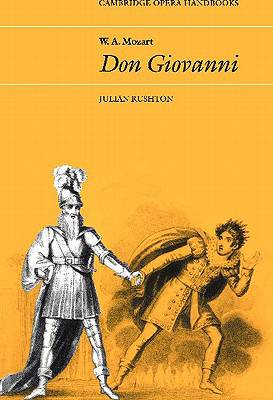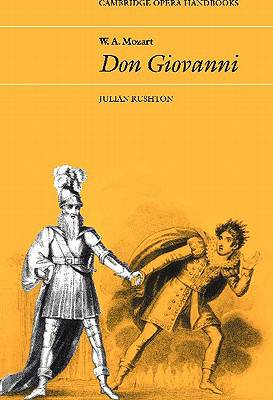
- Afhalen na 1 uur in een winkel met voorraad
- Gratis thuislevering in België vanaf € 30
- Ruim aanbod met 7 miljoen producten
- Afhalen na 1 uur in een winkel met voorraad
- Gratis thuislevering in België vanaf € 30
- Ruim aanbod met 7 miljoen producten
Zoeken
Omschrijving
This book is a study of Mozart's Don Giovanni, his second opera to a libretto by da Ponte. Although it is one of the handful of best-known and most often performed operas of the last two hundred years, Don Giovanni is seldom given in an authentic form and arguments persist as to its nature. Julian Rushton takes the view that, notwithstanding the tragic nature of certain scenes, it must be regarded as an opera buffa. He gives a brief summary of its history and life in the theatre, but the chief historical essay (by Edward Forman) concerns the subject-matter before it reached da Ponte. The book includes a very detailed synopsis which forms the basis of an extended commentary on the librettist's handling of a plot constructed of both original and inherited ideas. Bernard Williams contributes an essay on Don Giovanni as an idea in literature and philosophy since Mozart. The book concludes with an extensive bibliography, and a discography of complete recordings compiled by Malcolm Walker.
Specificaties
Betrokkenen
- Auteur(s):
- Uitgeverij:
Inhoud
- Aantal bladzijden:
- 176
- Taal:
- Engels
- Reeks:
Eigenschappen
- Productcode (EAN):
- 9780521296632
- Verschijningsdatum:
- 29/10/1981
- Uitvoering:
- Paperback
- Formaat:
- Trade paperback (VS)
- Afmetingen:
- 142 mm x 202 mm
- Gewicht:
- 235 g

Alleen bij Standaard Boekhandel
+ 56 punten op je klantenkaart van Standaard Boekhandel
Beoordelingen
We publiceren alleen reviews die voldoen aan de voorwaarden voor reviews. Bekijk onze voorwaarden voor reviews.








